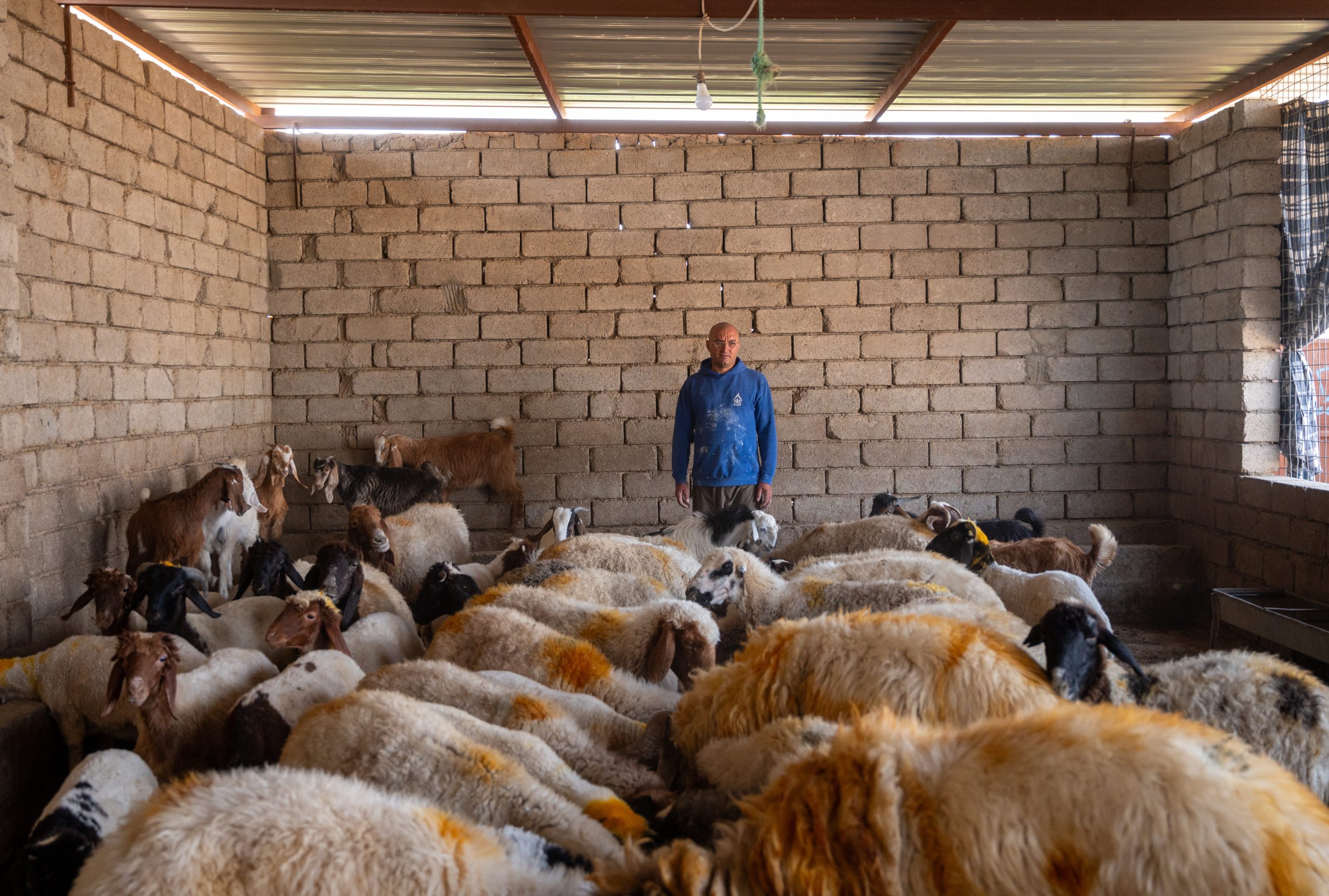In the wake of conflict and displacement in Iraq, the road to recovery has been marked by many challenges. However, stories of resilience and determination are changing the country’s narrative and giving hope for a better future. Committed to a stable Iraq, AVSI, with the support of the Bureau of Population, Refugees, and Migration (BPRM), has initiated several projects to empower communities and restore economic stability. These projects not only provided direct support to individuals and families but also created a ripple effect of positive change to benefit the entire community.
AVSI's Approach: Empowering Individuals, Strengthening Communities
AVSI recognized the need for an integrated approach to address the challenges communities face in post-conflict Iraq, with a focus on sustainable agriculture, livestock breeding, and economic empowerment. This approach involved providing technical training, access to resources, and linking communities to the market while fostering collaboration and community ownership. Additionally, AVSI rehabilitated community gardens that served as social interaction hubs and initiated food production programs to empower women and contribute to household income generation. By empowering local partners, AVSI aims to create a sustainable impact on the community rather just short-term relief efforts.
Data-driven impact
- Livelihood Restoration: in the targeted communities, 88.9% of 737 beneficiaries who received direct support reported increased household income.
- Economic Revitalization: the projects resulted in the creation of 413 direct and indirect jobs in agriculture, livestock breeding, and related sectors, further boosting local economic growth.
Success Stories: From Resilience to Growth
Fahima, a member of the host community in Duhok, and Mariam, an internally displaced person (IDP) from Mosul, serve as an inspiring example of how individuals from diverse backgrounds can unite, seek common ground, and strive towards a shared goal. Through the ASET II project, they learned to collaborate and build bridges, despite their differences. Today, their combined efforts have not only enhanced their own livelihoods and the well-being of their families, but also fortified the social fabric of their entire community.
Bahnam Matti, a cow breeder from Qaraqosh, Mosul, faced significant losses during the ISIS occupation. Displaced and without resources upon his return, the ASET project helped him restart his business with the necessary support. Through hard work and dedication, he has been able to build a larger flock and even diversified into cultivating corn and wheat for animal feed. Bahnam's success story is an example of how ASET empowers individuals to unlock their full potential, achieve financial stability, and find peace of mind, all while being uplifted by a supportive community.
Similar to Bahnam, Artin, a sheep breeder from Qaraqosh, lost everything during the displacement. However, with assistance from AVSI's (A virtuous production cycle to relaunch a city and its economic fabric for IDPs and returnees to the Nineveh Plains, Iraq project), he was able to rebuild his business from the ground up. With the support, he doubled his flock size, introduced poultry breeding, and cultivated crops for animal fodder, demonstrating how the project promotes a sustainable economic future for its participants by providing them with the necessary tools for economic diversification and growth.
The project's positive impact went beyond the direct beneficiaries, bringing new opportunities for diverse community members and revitalizing local economies. Shop owner William Matti saw a significant increase in his income, while veterinarian Dr. Bassam Toma witnessed a surge in demand for his services. These stories highlight the transformative power of the project to create positive change and inspire hope for a brighter Iraq.
The BPRM-AVSI collaboration serves as a model for effective post-conflict rehabilitation. Through the promotion of sustainable practices, community ownership, and empowerment of individuals, the project has brought about a remarkable transformation. It has not only improved livelihoods but has also instilled resilience and hope within the communities it has served.
Although the country has made significant progress, it still faces many challenges:
- Thousands of Iraqis remain displaced within the country.
- Iraq is ranked as the fifth most vulnerable country to climate change. The country is experiencing rising temperatures, droughts, and an increased frequency of sandstorms. These environmental changes have caused significant challenges for both the environment and the people living there.
- Ongoing issues of corruption and inadequate public services.
Despite the daunting challenges that arise after conflict, these inspiring success stories offer valuable lessons for future interventions. They showcase the true potential of well-designed programs to not only rebuild shattered lives but also to revitalize entire communities.








